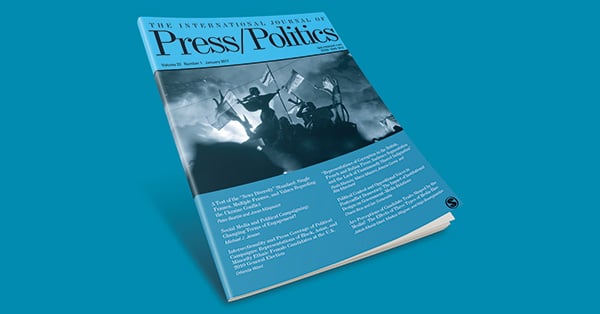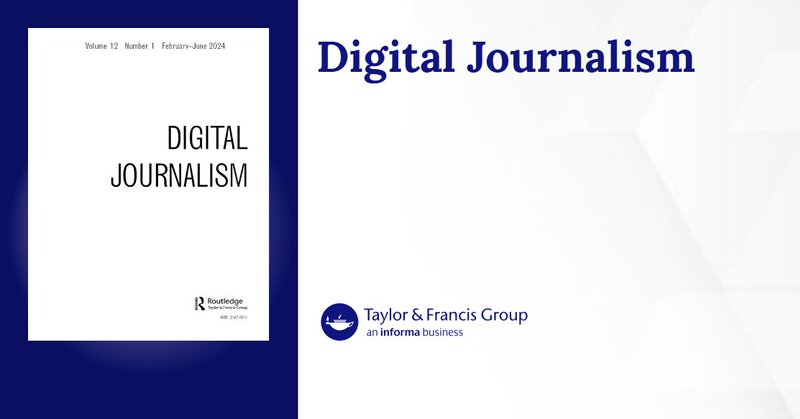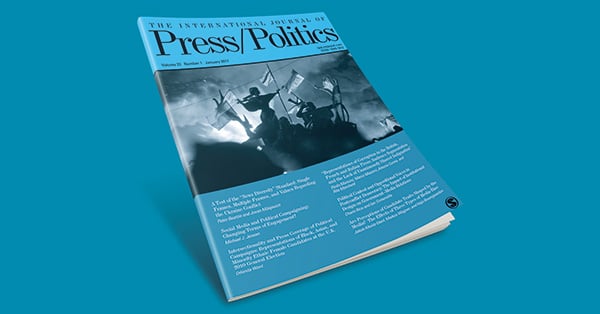
Alon Zoizner
@alonzoizner
Followers
336
Following
807
Media
3
Statuses
62
Assistant Professor, Department of Communication, University of Haifa @UofHaifa, Israel
Joined September 2014
Social media users adopt the toxic behaviors of ingroup members An analysis of 7 million tweets from over 700,000 accounts find that exposures to toxic behavior by ingroup members is the primary driver of contagious toxicity online https://t.co/VGm2qZaXrW
9
83
229
📖🔓 Read the full open-access paper here: https://t.co/iibMm5rOU7
0
0
0
These findings are based on Twitter (X) data from Israel during 2023. We analyzed over 1M tweets by 12k users and 6M tweets by 700K accounts they follow. We tracked over time how exposure to toxic posts from ingroup versus outgroup members predicts users' own toxic expressions.
1
0
0
Even "milder" forms of toxicity from the ingroup, such as impolite style (disrespectful tone), increase intolerant substance (humiliating the outgroup). This shows that toxic behaviors often seen as merely "heated" may in fact contribute to more exclusionary and harmful discourse
1
0
0
Our findings show that exposure to ingroup toxicity is the strongest and most consistent driver of contagious toxic behavior. In contrast, outgroup toxicity shows much weaker and less consistent effects on users' own toxic behavior.
1
0
0
New publication alert🔓🚨 Toxic speech is widespread on social media – but do users mirror the toxic behavior of their ingroup or react defensively to outgroup toxicity? Our new paper in JCMC examines how ingroup and outgroup behavior shape the spread of toxicity on social media.
1
3
9
📖🔓Read the full open-access paper here:
journals.sagepub.com
With artificial intelligence (AI) increasingly shaping newsroom practices, scholars debate how citizens perceive news attributed to algorithms versus human jour...
0
0
2
It was wonderful to collaborate on this with some fantastic colleagues: Jörg Matthes, @nicoleta_corbu, @claesdevreese, @esserfrank_, Karolina Koc-Michalska, Christian Schemer, Yannis Theocharis & @janzilinsky
1
0
3
These patterns hold across the topics reported, citizens' political extremity, their pre-existing attitudes toward AI, age, and media trust.
1
0
1
We examine this issue with a pre-registered conjoint experiment in the US (N = 2,011) that mimics a high-choice media environment. We find: -Citizens evaluate AI-attributed news as negatively as cross-cutting partisan sources. -Citizens still strongly prefer like-minded sources.
1
0
1
New paper alert!🔓🚨 As AI is increasingly adopted in newsrooms, little is known about how people perceive it in today’s polarized media environment. Studies find a preference for news by human journalists, but what if the human content comes from cross-cutting partisan sources?
1
0
4
מעלים פה תכנים פוליטיים? חושבים כל הזמן על פוליטיקה? השרשור הזה הוא עבורכם - ועליכם! בכתבה ב-@the7i, אני מציג ממצאי מחקר שערכנו ב-@LibResInst ובו בחנו באיזו מידה ישראלים מעורבים באופן עמוק בפוליטיקה - ובמה האנשים האלו שונים משאר הישראלים. הקישור לכתבה בתגובה. >>>
2
5
24
מוכנים להוביל את מהפכת המידע של המאה ה-21? התוכנית בניהול מידע וידע בחוג לתקשורת מציעה את המפתח להצלחה בעולם הדיגיטלי המתפתח במהירות🤓 לפרטים נוספים והרשמה> https://t.co/V1JcdJYv9H
0
1
2
1/5 How does factual knowledge affect political attitudes? With the brilliant Nick Stagnaro, we find that learning facts reduces attitude polarization on contentious issues – challenging the view that facts either don't matter or make people more polarized. New in @NatureComms!
1
8
40
ONLINE FIRST & OPEN ACCESS! This study by Jörg Matthes, @alonzoizner, @AndreasNanz et al. examines incidental political news exposure, revealing how its effects on participation depend on engagement levels and the quality of democracy. https://t.co/AbB6ykyurq
tandfonline.com
In the modern, networked information environment, incidental exposure (IE) to political news is often theorized to benefit democracy, particularly by fueling political participation. Using cross-na...
0
3
3
The full open-access paper can be found here:
journals.sagepub.com
Campaign promises are a central mechanism for voters to hold politicians accountable, and information about their breakage or fulfillment features prominently i...
0
0
3
Citizens also downplay and rationalize broken promises from their own side but not from opponents. Together, our findings suggest that the impact of broken promises is context-dependent and often quite limited.
1
0
1
We find that broken promises hurt domain-specific evaluations but have little impact on overall performance ratings. Moreover, the effects are limited when people already know the politician.
1
0
1
🔓🚨 New open-access paper! 🚨🔓 Campaign promises are common—but do citizens punish politicians for breaking them? Together with @EranAmsalem, we ran 4 experiments (N = 7,030) in the U.S. & Israel to test how people react when ingroup and outgroup politicians break their word.
1
5
25
שמחתי להתארח בפודקסט דמוקרTEAM של @LibResInst ולשוחח על שיח פוליטי רעיל של יוזרים ברשתות החברתיות ושל פוליטיקאים. תוכלו לשמוע על הסיבות והתוצאות של שיח פוגעני בפוליטיקה, כולל מחקר שלי בנושא שניתח מיליוני ציוצים בטוויטר ישראל בתקופה הסוערת לפני 7 באוקטובר. https://t.co/fKlASYfmx5
0
3
13







